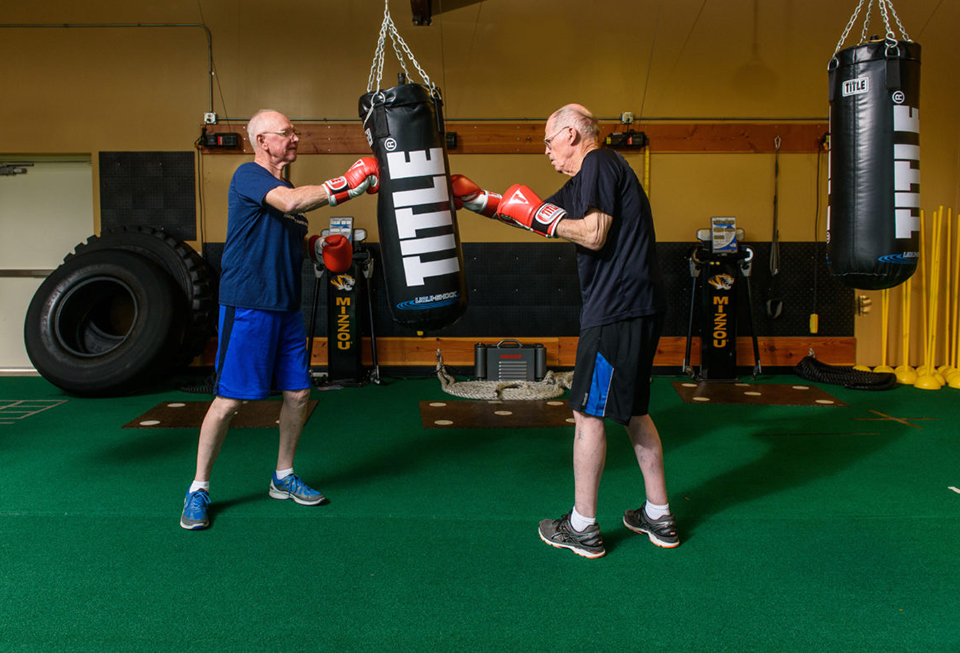Parkinson’s Patients Find A Fighting Chance In The Ring
Rock Steady Boxing is helping patients regain their strength, balance and personalities once more.

Boxing is all about discipline and balance — finding the right way to move, duck or weave in any situation. But for people living with Parkinson’s disease, it’s not the right or left hook, but the everyday movements that can be a challenge. The Columbia branch of the Rock Steady Boxing program, organized through University of Missouri Health Care’s Human Performance Institute, offers a way for people living with Parkinson’s to fight back against its troublesome symptoms using boxing and the exercises associated with it.
Scott Newman, a former Indiana-based prosecutor who was diagnosed with early-onset Parkinson’s disease at the age of 40, founded Rock Steady Boxing in 2006. Working with a boxer one on one, Newman found an exercise regiment that helped improve his symptoms. With that as a foundation, he worked to spread programs to patients across the nation.

The program has been operating in Columbia for a year, and since, Rock Steady coach Courtney Meyers has used exercise to help participants regain balance and gait. It’s one of the main focuses of the program. “[Patients] lose their arm swings, and their steps become extremely small,” Meyers says. To help recover arm mobility, Meyers has participants per-form “pole walks,” during which they focus on walking and balancing between PVC pipes. In addition, push-ups and planks are paired with 30 minutes of cardiovascular activity in the form of boxing — this is where patients find their footing. In the ring, they’re able to test their strength and agility hitting punching bags as fast or as hard as they can, some-times in friendly competition with other boxers. For Meyers, this is a great way to get par-ticipants moving, testing their balance, strength and agility.
Since the program began in Columbia, Meyers says participant improvement has been seen not only physically, but also mentally. “I think this is the strongest I have ever been,” says Susan Vittone. Diagnosed with Parkinson’s in late 2015, Vittone has attended Rock Steady classes since they began this past February. She’s a firsthand example of the twofold suc-cess. Vittone says she has more balance and strength, and beyond physical results, her Par-kinson’s symptoms have not progressed any further in 11 months. “The great thing is that the people who have chosen to participate in this class are experiencing the same kinds of results,” she says.
Meyers also works to keep participants sharp mentally with games that work the mind and test hand-eye coordination. Since there is no cure for the disease, it’s these little mental and physical improvements that create the most impactful changes in her boxers. “The way they look at life has improved, and their personalities start to come back,” she says. “They lose a lot of that when they’re diagnosed with Parkinson’s, so that stuff is more important.”
Photos: Courtesy of MU Health Care
